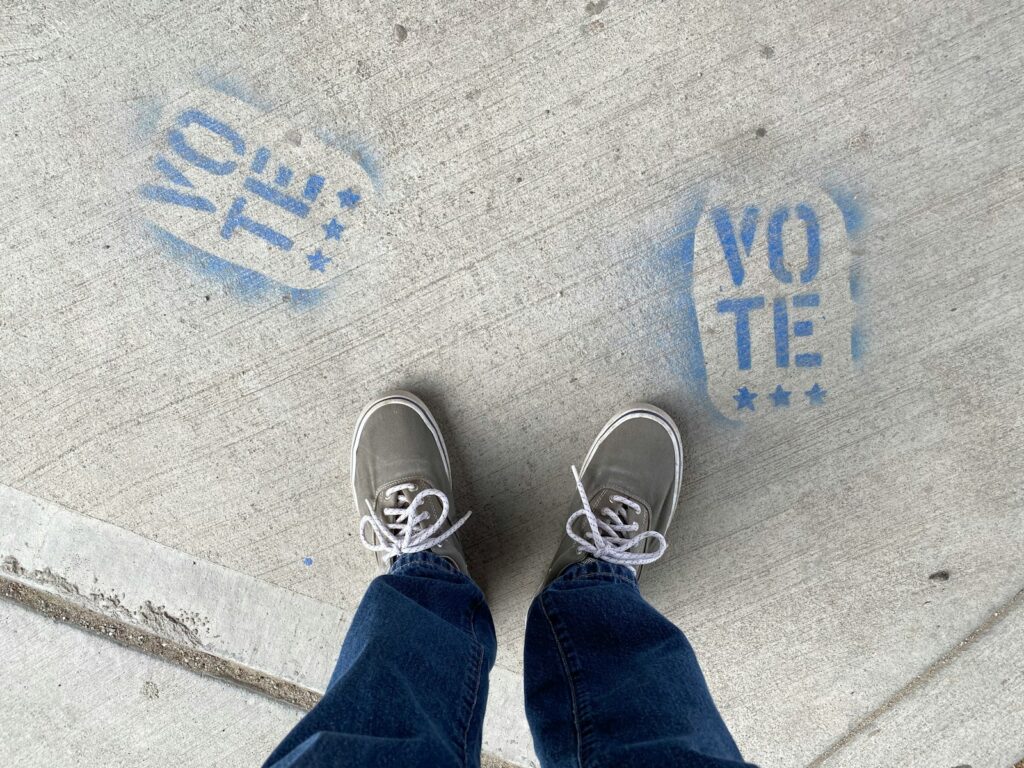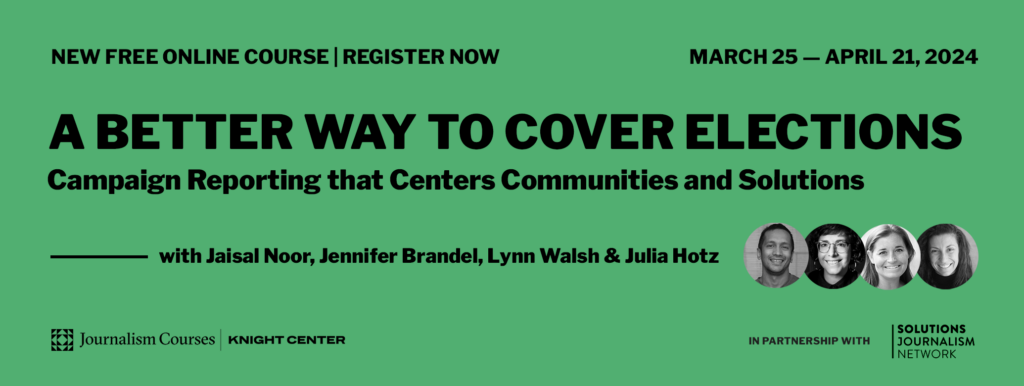
In 2024, roughly half of the world’s adults will head to the polls in this super election year, putting democracy and the media’s role in the spotlight. In this significant year for elections, the Knight Center for Journalism in the Americas, in partnership with The Solutions Journalism Network, is proud to present a new free online course aimed at promoting a solutions-oriented approach to elections that moves beyond the traditional “horse race” coverage.
This massive, open online course, “A Better Way to Cover Elections: Campaign Reporting that Centers Communities and Solutions,” is scheduled to run from March 25 to April 21, 2024. This four-week course seeks to challenge the status quo of traditional election coverage by offering participants innovative strategies and tools to engage communities, foster trust, and promote solutions-oriented reporting.

“We are grateful to the Solutions Journalism Network for their support in organizing this excellent course that will benefit journalists in the United States and around the world who will be covering elections this year,” said professor Rosental Alves, founder and director of the Knight Center. “It’s hard to imagine a topic more important for news organizations this year and it would be hard to find better instructors and guest speakers.”
This English-language course will be led by a highly qualified team of instructors:
“Participants will gain expertise in how to report with and for, not just about, their communities; prove out practices that heighten civic knowledge and participation; and build trust with audiences, especially communities that have long been marginalized and stigmatized,” Noor said.
During the four-week course, participants will rethink election reporting, moving beyond political drama to focus on community issues. They’ll learn to engage with transparency and accountability, building trust with audiences. By prioritizing solutions-oriented reporting, journalists will inspire positive change and strengthen democracy.
“Political coverage that puts the public first can build trust, reduce polarization and help our communities solve problems,” Noor said. “In other words, it can help democracy work better.”
Through a combination of video lectures, readings, discussions, and quizzes, participants can engage with the course materials at their own pace, completing activities and participating in discussions as their schedules allow. Whether you are a journalist, editor, student, or aspiring reporter from anywhere around the world, this course offers valuable insights into transforming election reporting.
Although this course is asynchronous, meaning there is no mandatory live instruction, interactive learning is still encouraged via discussion forums and live office hours that will be offered with the instructors to ensure that participants receive personalized support and guidance throughout the course. These sessions will be recorded for those who are unable to attend so they can access them later.
The course will be organized into four modules:
The instructors will be joined by several special guest speakers, including:
Don’t miss out on this chance to innovate your approach to election reporting!
Upon successful completion of the course, participants who meet all the requirements are eligible to receive a certificate of completion. To obtain the certificate, participants must pay an online administrative fee of $30 USD, using a credit card.
“This distinctive new coverage, which starts with listening deeply to communities, can give you a comparative advantage in your market,” Noor said.
Join us in this course and learn new ways to elevate your election reporting skills to make a meaningful impact in your community.